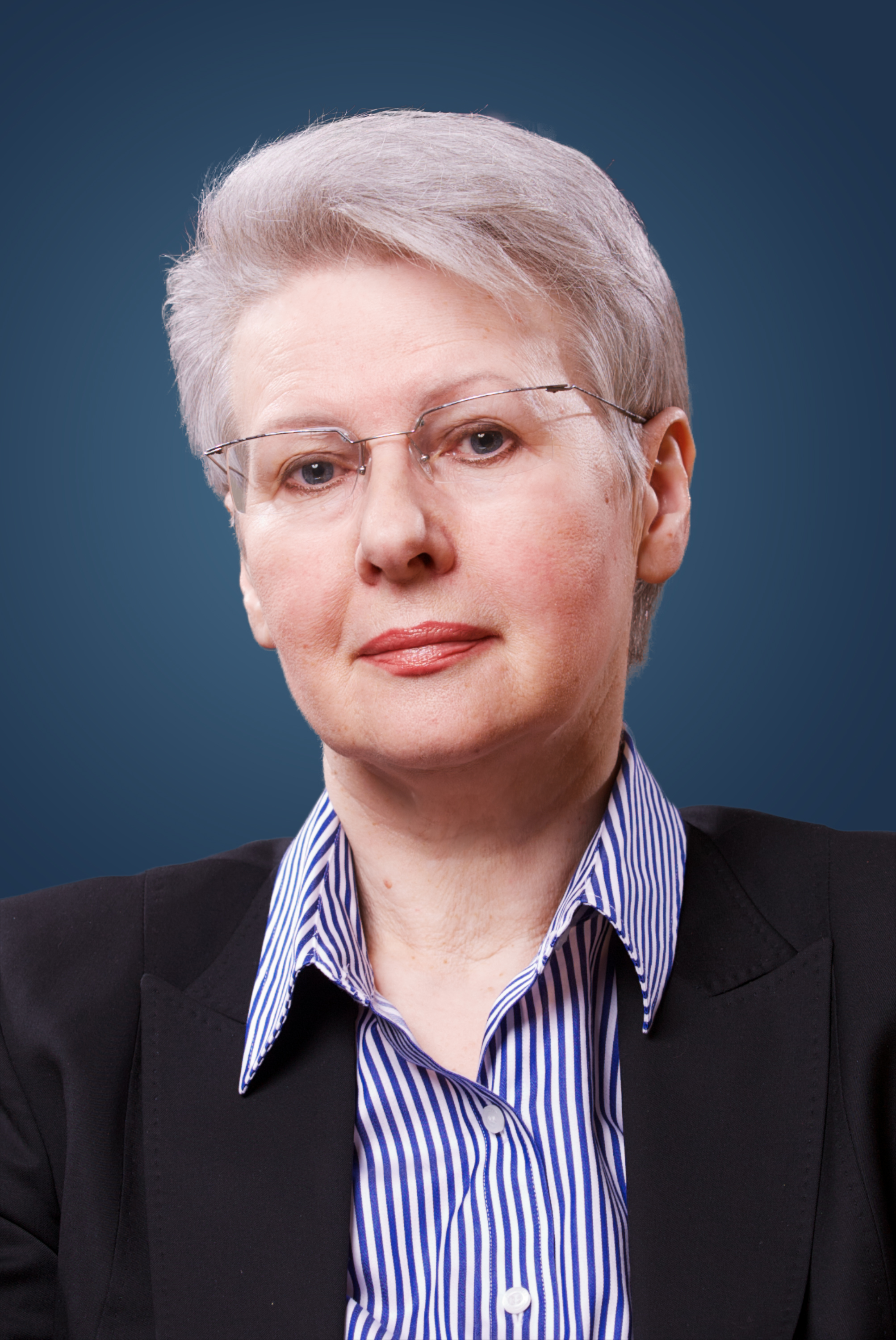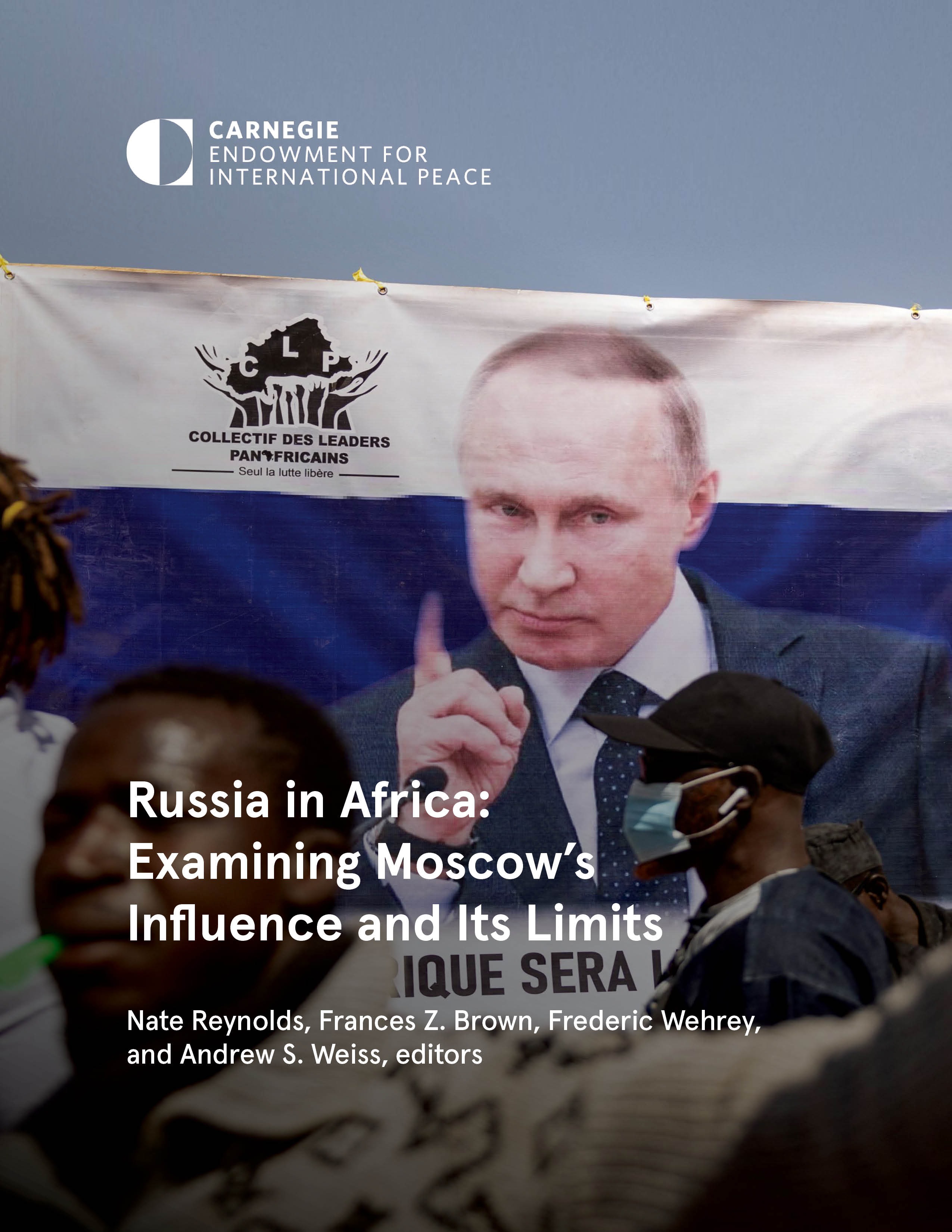Lilia Shevtsova
{
"authors": [
"Lilia Shevtsova"
],
"type": "legacyinthemedia",
"centerAffiliationAll": "",
"centers": [
"Carnegie Endowment for International Peace",
"Carnegie Russia Eurasia Center"
],
"collections": [],
"englishNewsletterAll": "",
"nonEnglishNewsletterAll": "",
"primaryCenter": "Carnegie Russia Eurasia Center",
"programAffiliation": "",
"programs": [],
"projects": [],
"regions": [
"Caucasus",
"Russia"
],
"topics": []
}
REQUIRED IMAGE
Putin's Dilemma: To Stabilize or to Transform?
Source: Carnegie
Putin's Dilemma: To Stabilize or to Transform?
Originally printed in The Moscow Times on Monday, January 13, 2003. Page 11.
It's tough being Vladimir Putin these days. History has handed him a true challenge, and he must think long and hard before deciding this, his single greatest dilemma: Should he do only the minimum necessary to be reelected to a second term or remain true, more courageously, to his declared mission of modernizing Russia?
Every leader has to make hard choices now and then, ones threatening their very career, but for Putin, the president of an adolescent democracy without stable, transparent rules of the game, the stakes are even higher.
His choice is between continuing his role as stabilizer, thus preserving the "elected monarchy" status quo, and becoming a transformer, a pioneer reorganizing for the first time in history the way Russia is ruled, restructuring the power vertical and purging insidious bonds between power and business.
If he only wants political survival, he's in good shape. Putin can keep doing what he has been doing: trying to please everyone -- the left-wing electorate, the bolota (or swamp, Russia's term for political opportunists without convictions), the nationalists and the liberals -- without being suffocated in the embrace of his own elite entourage.
This, of course, means he constantly has to dance; one step forward, one step back, step right and then left. He has been a good student whose teacher was none other than Boris Yeltsin. In the 2004 election, he must only stand above the fray, preserving an inscrutable mask and letting everyone privately believe he listens most carefully to them, and he'll win.
Putin has two pillars of support: his consistently sky high approval rating (now in the 80-percent range) and strong oil prices that have kept the economy afloat. This, seemingly, is enough to guarantee him not only the presidency but also the loyalty of the elites. But Putin should be cautious. Gone are the days when he could mesmerize the chattering classes, holding everyone in his sway.
He knows the cowardly Russian establishment is watching him, waiting for a mistake, hoping to find a weakness to exploit. Coming from the intelligence world, he has to suspect there are people waiting in the wings ready to snag him.
He should watch Mikhail Kasyanov, his prime minister and one of those whom the rumors place as his rival. Having moved to rein in disobedient generals, most recently making an example of uppity Gennady Troshev in December, he should also beware of those who seem to be his friends. Even loyalists could betray him. The Kremlin is full of Byzantine intrigue, and as he walks the corridors, it must dawn on him that everyone he encounters is jockeying for power and survival.
No, Putin cannot trust Russia's ruling class, and not just because his previous profession taught him to trust no one. No single group constitutes a reliable base. Oligarchs, the government apparatus, regional elites and liberal-technocrats are happy with him for now, but they all want to use him. Each hoped it would be the one to pull the levers of government.
For now, Putin has managed to avoid being taken hostage by any one faction. He is curbing the appetites of his own men from St. Petersburg, and he is trying to escape the puppeteers from Yeltsin's "Family." But absorbed as he is in Kremlin games of hide and seek, he has no time to think big.
We know what he wants. He wants to get rid of old obligations, old friends and Ol' Boris, who constantly wants to advise his heir. Putin seeks a different kind of legitimacy, not connected with the old Family or with Chechnya. He doesn't want to be a wartime president, too closely associated with a war that he realizes has no military solution. This is why he's trying to cut himself loose from the Chechen conflict through its Chechenization, delegating responsibility to local elected officials and thereby freeing him to focus his energies elsewhere.
He continues to step cautiously and seems to hate himself for bowing in all directions. But he may be thinking, why do away with the stabilization pattern if it guarantees him victory in 2004? Just follow the old path: pretend and promise.
It's a well-known path. He will again face off against Communist Party leader Gennady Zyuganov and will, again, win as the lesser evil. And it's an appealing path. He can simply postpone all the tough decisions until after the election; that's the best time to adopt a new, more daring course, he no doubt rationalizes. Safe and secure for another four years he'll be in a stronger position to tackle long-promised reforms, including the absolutely vital breakup of the country's natural monopolies -- above all, of Unified Energy Systems, the power grid.
Maybe he'll follow through on this, maybe he won't. He should. In the meantime, though, he will have to bargain, deal and compromise, pay debts and enter into new patron-client relationships, and all of this makes it increasingly impossible for him to ever be his own self. This is the price of being a monarch.
But Putin knows -- he has to know -- that he may not have the luxury of continuing his Kremlin dance. He understands that the leadership potential of the elected monarchy over which he presides shrinks with every passing month. Economic growth is declining. Investments are not flooding in as expected. The oligarchy is becoming more demanding, and he is losing courage to fight it.
The recent privatization of state oil company Slavneft, snapped up last month by his old Family friend Roman Abramovich for a laughably low price, demonstrates how limited his resources are. To be everybody's man means he can do no more than shut his eyes and acquiesce.
Putin is a smart guy who understands that prolonging the status quo may spread the rot or, worse, plunge the country again into crisis.
Yet to follow a transformation path is riskier, success is often elusive and he might slip and break his neck. If he doesn't navigate the route wisely, reform could falter Gorbachev-style, with a reformist leader losing control.
But Putin could be lucky. If he decides to dehermetize the regime and manages to cross the thin ice without falling in, he will accomplish what no Russian or Soviet leader ever has. He will begin building a responsible system of governance based not on irrational, opaque, tsarlike power, but on the rule of law. This would truly be a new chapter in Russian history.
With his phenomenally wide public support, Putin has the chance to propose to his constituents a new and daring agenda of anti-oligarchic and anti-bureaucratic revolutions. This is an agenda that Russia will support. With polls showing 68 percent of Russia's citizens in favor of reform, he has the solid backing he needs to stick out his neck.
Will Putin risk it? Will he follow the model of France's President Charles DeGaulle who weakened the traditionalist political establishment in order to advance reform? Judging by his present behavior, it's doubtful. But he's capable of unexpected moves. All alone, he made a pro-Western shift after Sept. 11 despite the loud protests of generals and apparatchiks. He has the guts and courage to insist on having his way.
Time is running out, though. If Putin wants to change his pitch, he has to hurry. The best occasion would be his March state of the nation address. If he doesn't forge a new path soon and if he gets reelected as a guarantor of the status quo, he will cement an oligarchic-capitalistic and bureaucratic-authoritarian regime -- and he'll lose the option of pursuing his dream of modernizing Russia. He will be left in history as a mere footnote.
Given this dilemma, what choice he will make and when? We'll see soon. Not making a choice is also a choice.
Lilia Shevtsova is a senior associate of the Moscow Center of the Carnegie
Endowment for International Peace and author of the forthcoming book "Putin's
Russia." She contributed this comment to The Moscow Times.
About the Author

Former Senior Associate, Russian Domestic Politics and Political Institutions Program, Moscow Center
Shevtsova chaired the Russian Domestic Politics and Political Institutions Program at the Carnegie Moscow Center, dividing her time between Carnegie’s offices in Washington, DC, and Moscow. She had been with Carnegie since 1995.
- Putin Has Fought His Way Into a CornerIn The Media
- How Long Russians Will Believe in Fairy Tale?Commentary
Lilia Shevtsova
Recent Work
More Work from Carnegie Endowment for International Peace
- How Far Can Russian Arms Help Iran?Commentary
Arms supplies from Russia to Iran will not only continue, but could grow significantly if Russia gets the opportunity.
Nikita Smagin
- Is a Conflict-Ending Solution Even Possible in Ukraine?Commentary
On the fourth anniversary of Russia’s full-scale invasion, Carnegie experts discuss the war’s impacts and what might come next.
- +1
Eric Ciaramella, Aaron David Miller, Alexandra Prokopenko, …
- The Kremlin Is Destroying Its Own System of Coerced VotingCommentary
The use of technology to mobilize Russians to vote—a system tied to the relative material well-being of the electorate, its high dependence on the state, and a far-reaching system of digital control—is breaking down.
Andrey Pertsev
- Can the Disparate Threads of Ukraine Peace Talks Be Woven Together?Commentary
Putin is stalling, waiting for a breakthrough on the front lines or a grand bargain in which Trump will give him something more than Ukraine in exchange for concessions on Ukraine. And if that doesn’t happen, the conflict could be expanded beyond Ukraine.
Alexander Baunov
- Russia in Africa: Examining Moscow’s Influence and Its LimitsResearch
As Moscow looks for opportunities to build inroads on the continent, governments in West and Southern Africa are identifying new ways to promote their goals—and facing new risks.
- +1
Nate Reynolds, ed., Frances Z. Brown, ed., Frederic Wehrey, ed., …













